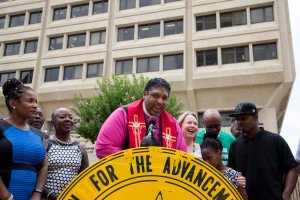When Congress uses the word “shall,” it intends to create a mandatory obligation. That was the unanimous conclusion of the U.S. Supreme Court this week in the case of Kingdomware Technologies, Inc. v. U.S. (opinion). “Shall,” the Court emphasized, was meant as “a command.”
This is one of the cardinal rules of statutory interpretation. It applies not only to acts of Congress, but to state legislative acts as well.
A couple of weeks ago I posted New complaint filed against Secretary of State Michele Reagan – will the AG Act this time?
This week we learned “Oops! … I did it again.” Reagan’s office skips election manual:
 Secretary of State Michele Reagan did not compile a new election procedures manual for the 2016 cycle, perhaps the first time in decades, if not longer, that the office did not release the biennial publication that instructs county and local officials on the conduct of elections.
Secretary of State Michele Reagan did not compile a new election procedures manual for the 2016 cycle, perhaps the first time in decades, if not longer, that the office did not release the biennial publication that instructs county and local officials on the conduct of elections.
* * *
State law requires the secretary of state to submit the manual for review to the attorney general and governor “not fewer than ninety days before each election,” a deadline that has already passed for the 2016 primary election. The manual must be issued no less than 30 days before each election, which some county election officials say is no longer feasible.
* * *
[T]he law says: “Such rules shall be prescribed in an official instructions and procedures manual to be issued not later than thirty days prior to each election. Prior to its issuance, the manual shall be approved by the governor and the attorney general. The secretary of state shall submit the manual to the governor and the attorney general not fewer than ninety days before each election.”
Not this time.
Reagan’s office has decided it’s not necessary. To her, state law is more of a recommendation than a requirement.
Read more
 Wide-ranging restrictions on voting in North Carolina came under attack as racially discriminatory in a federal appeals court Tuesday, with one judge saying the legislature’s rush to impose limits after getting a green light from the Supreme Court “looks pretty bad to me.”
Wide-ranging restrictions on voting in North Carolina came under attack as racially discriminatory in a federal appeals court Tuesday, with one judge saying the legislature’s rush to impose limits after getting a green light from the Supreme Court “looks pretty bad to me.”



